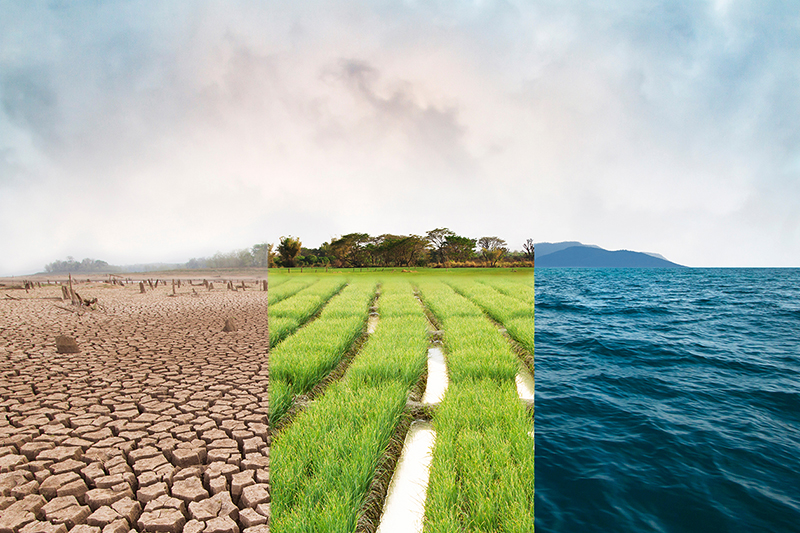What is environmental sustainability?
According to the United Nations (UN) World Commission on Environment and Development, environmental sustainability is ideal, if not the best, way to ensure that future generations have access to the natural resources they require to live.
In a broad sense, environmental sustainability requirements differ greatly according to a given location’s economic, social, and ecological circumstances. Federal rules are published regularly. For example, in the United States, the Environmental Protection Agency regulates everything from air pollution to refrigerants to hazardous waste disposal.
The Environmental Protection Agency (EPA) retains the right to create and enforce environmental regulations for air, water, soil, wildlife habitats, and carbon emissions through monetary fines and legal action. State/provincial and municipal governments may establish more stringent regulations. Diesel cars and older, less fuel-efficient autos are being restricted in cities such as Paris.
However, evidence indicates that to achieve environmental sustainability, a broader, global set of policies or a more substantial commitment from businesses themselves may be required.

Why is environmental sustainability important?
Why is sustainability important? One of the vital points of the climate-change jigsaw is achieving a balance between natural resources and human consumption that is respectful to the natural environment and feeds our contemporary way of life. There could be a food and energy crisis and a rise in greenhouse gas emissions that will lead to a global warming disaster if resource depletion continues unchecked.
Therefore, sustainability enhances our quality of life while safeguarding our environment and natural resources for future generations. Sustainability is also linked to a company’s holistic strategy in the business sector- considering everything from manufacturing to logistics and even customer service. Taking the sustainable approach is not just good for business; it also enhances the long-term advantages of an environmental emphasis.
What are the principles and goals of environmental sustainability?
Because natural circumstances, economic systems, and social systems change from nation to country, there is no uniform blueprint for implementing sustainable measures. To guarantee that sustainable development is pursued as a global goal, each government must adopt its concrete strategy.
The Environmental Protection Agency (EPA) develops and implements environmental sustainability and protection policies. These rules apply to natural circumstances, economic systems, and social systems. Because they change from nation to country, there is no uniform blueprint for implementing sustainable measures. To guarantee that sustainable development is pursued as a global goal, each government must adopt its concrete strategy. These rules apply to the air, the state of the water, soil quality, plant life, animals and their natural environments, toxic waste, and greenhouse gases.
Environmental law infractions are white-collar crimes, and violators may face fines, jail time, probation, or a combination of the three. However, most businesses only pay penalties if they break the law.
Examples of environmental sustainability
Environmental sustainability examples are peculiar to prominent industries.
Fashion
Fast fashion focuses on delivering new collections quickly and at a low cost. Cotton that grows quickly necessitates the use of industrial, hazardous chemicals (pesticides and fertilizers), which can lead to soil contamination, depletion, and eutrophication. On the other side, there is a lot of textile waste, and many clothing is composed of synthetic fibers that end up in the ocean as microplastics after being washed. In this sense, a firm that creates garments with durable fabrics, employs sustainably farmed cotton, follows circular economy concepts across its value chain, and uses less hazardous chemicals is environmentally responsible.
Electronics
Earth materials collected by the mining sector are used to make electronic gadgets. Mining may be a very polluting business, and new mines influence deforestation. As a result, being sustainable in the tech area entails using equipment for an extended time. Therefore, those who want to be sustainable should consider not exchanging their smartphones every other year! It’s also about ensuring that they’re correctly disposed of, as they may be pretty polluting if not appropriately handled.
Transportation
Contrary to popular belief, aircraft, cargo ships, and even trucks are not the primary sources of CO2 emissions, and vehicles bear a significant share of the burden. Taking public transit, particularly trains and buses, is a more sustainable option unless driving a car. It’s much better to take a stroll or pedal.
Even more advanced technologies are available now to mitigate pollution generated by movement. Electric automobiles, hydrogen cars, or electric scooters are rapidly gaining popularity and industrial growth on a vehicular level. Simultaneously, methods such as carpooling, which allows drivers to get their vehicles empty and save money (as well as pollution), are excellent alternatives.
No waste
The zero-waste movement is a way of life that promotes people to use all sorts of resources in a cyclical fashion, similar to how nature works. As a result, the philosophy’s ultimate purpose is to prevent resources from following a linear path and ending as waste in the seas or landfills. To achieve this, people must refuse what they don’t need, decrease what they receive, reuse it, and recycle or compost it.
A minimalist way of life is typically associated with this lifestyle, in which individuals are encouraged to leave behind and refuse what they do not require. People who bring their bulks to shops to buy commodities like chickpeas, rice, or liquid soap are also familiar with this idea.
Conclusion
As people continue to live more sustainable lifestyles due to the climate crisis, there is a push for sustainability to become a more desirable emphasis for businesses. Businesses will most likely be expected to have a positive climate impact across the whole value chain, a better effect on the environment, people, and atmosphere, and a valuable contribution to society in the future. Companies will be held accountable irrespective of the industry, and any environmental harm or hazardous emissions from manufacturing processes must be minimized or avoided.
It is also projected that resources would be recycled to meet global population expansion in what is known as a ‘circular economy.’ This change allows one person’s rubbish to be utilized as a resource by another, resulting in considerable waste reduction and a more efficient supply chain.









